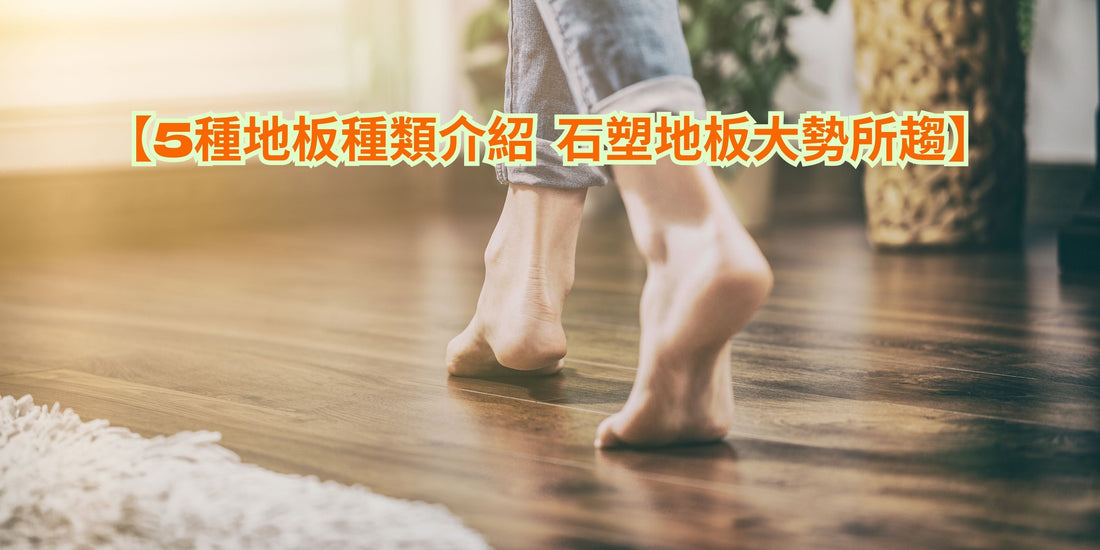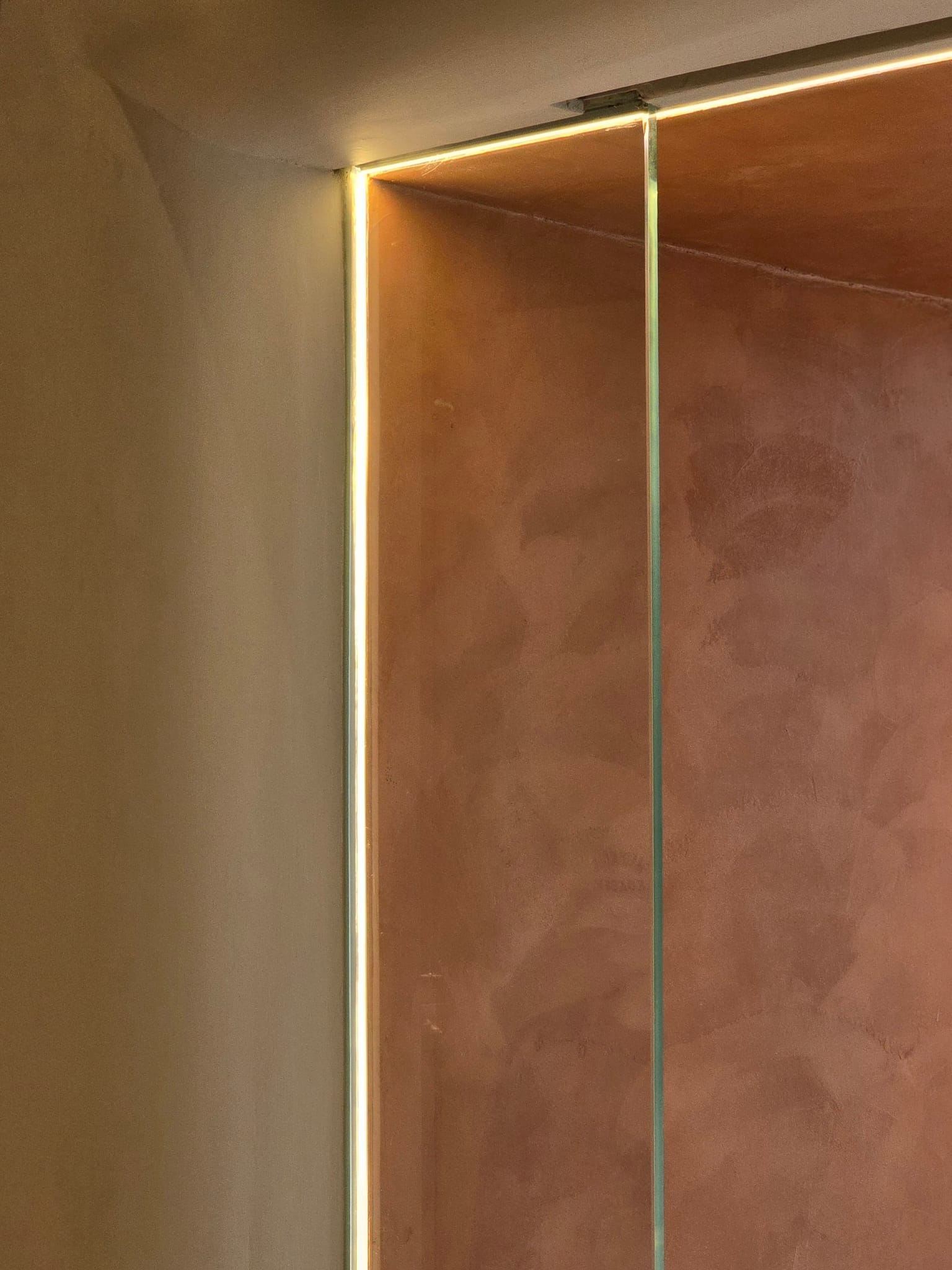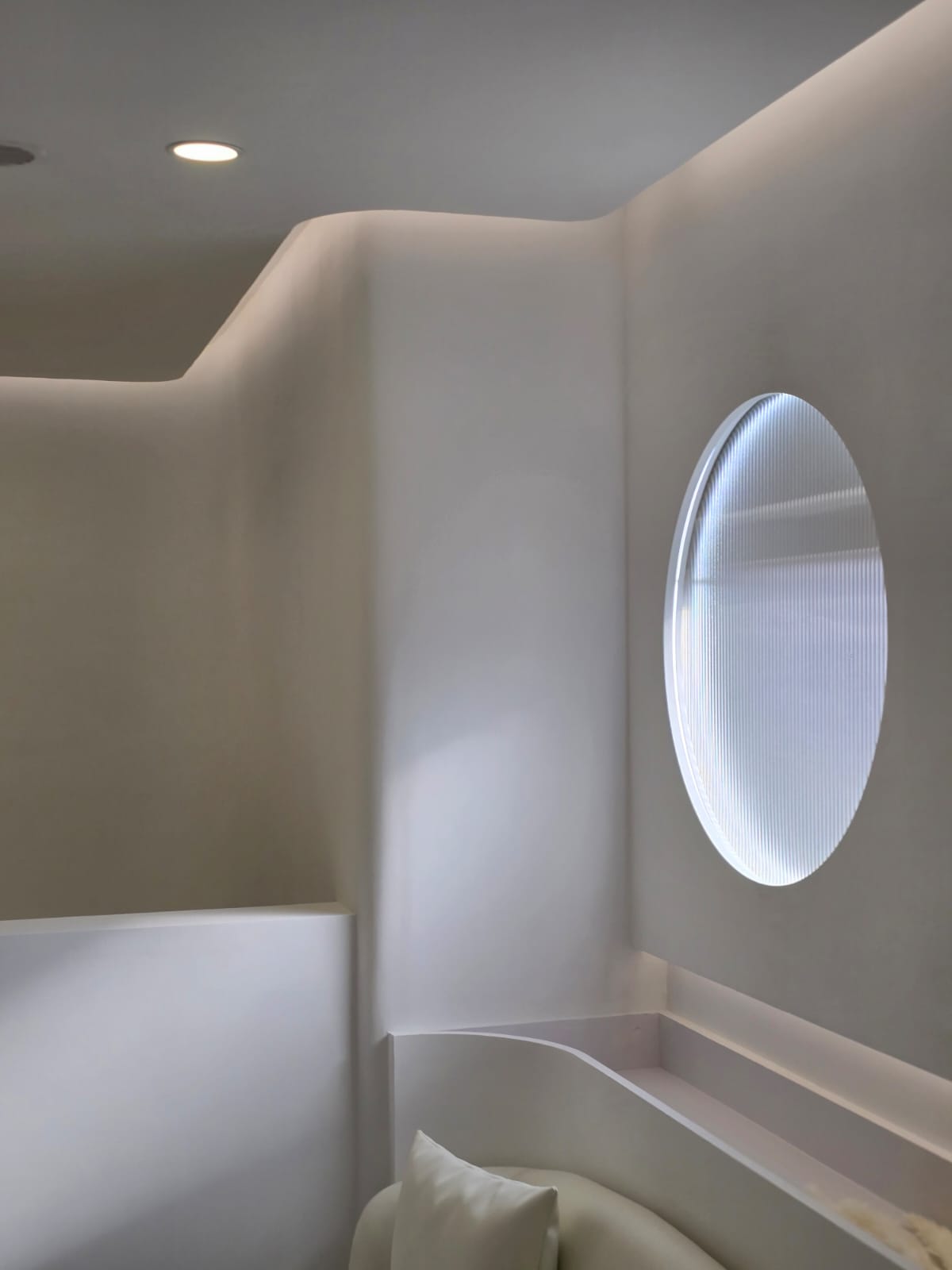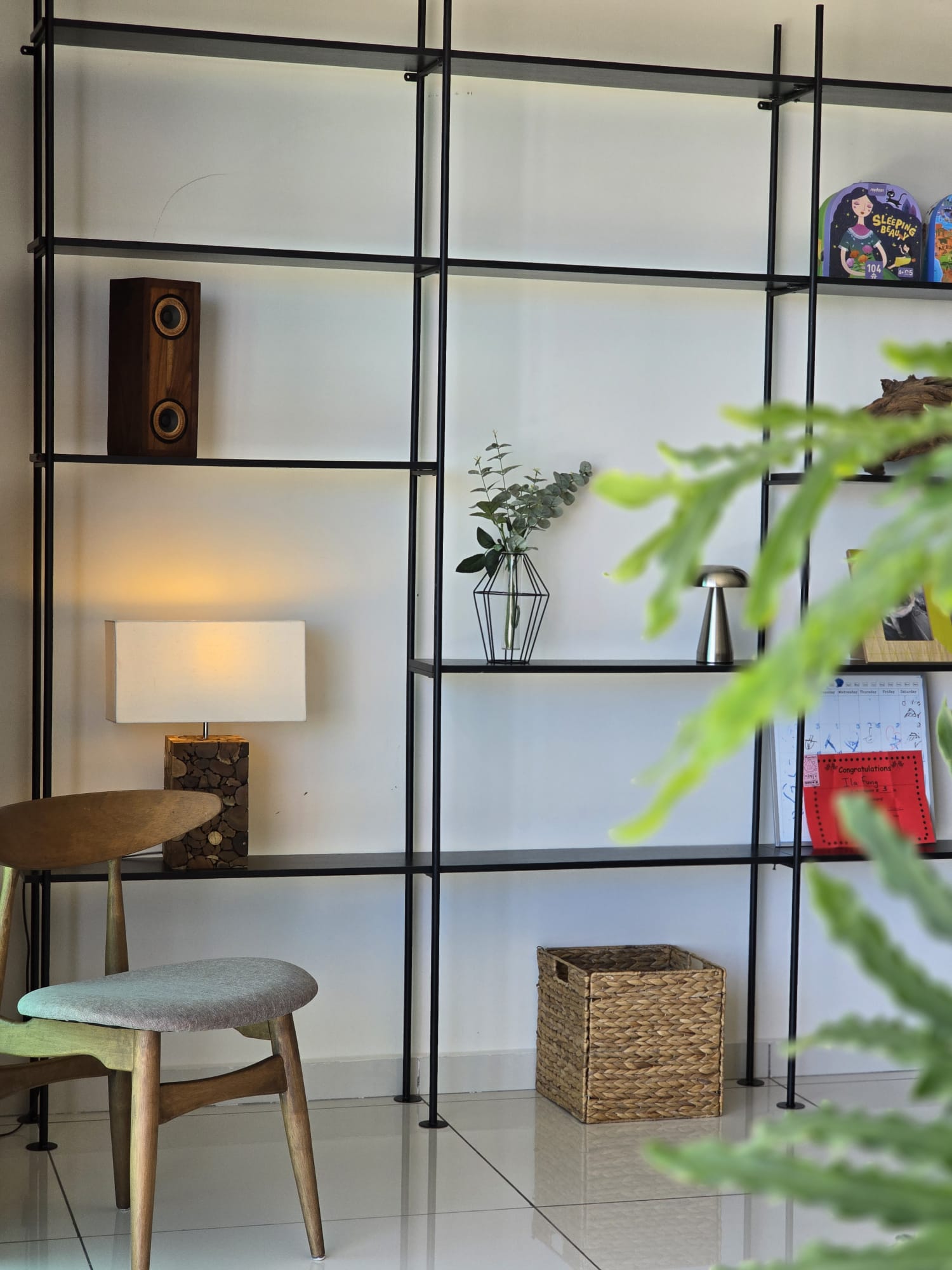
[Introduction to 5 types of flooring: Stone plastic flooring is the general trend]
Share
Flooring Types
Flooring is a crucial part of home renovations. Choosing the right flooring not only impacts interior aesthetics but also durability and ease of maintenance. There are five common flooring materials on the market: tiles, seamless microcement flooring, SPC flooring, wood flooring, and wood-look flooring. Each has its own advantages and disadvantages, and different flooring types can produce distinct effects depending on your needs and space. Have questions about flooring types? Design House HK will provide detailed information in this article.

1. Floor tiles
Floor tiles have always been a traditional and popular choice, particularly suitable for damp areas like kitchens and bathrooms. Their biggest advantage is their exceptional wear resistance, excellent waterproofing, and heat resistance, with their high hardness and durability. However, their downside is their relatively hard and cold texture, making them less comfortable to walk on, and they can be quite chilly in winter. Furthermore, repairing damaged tiles can be difficult, typically requiring the entire tile to be replaced. If a particular tile is out of stock and out of stock, you may need to settle for a similar tile, which creates a dissonant effect. Furthermore, because floor tiles are typically laid using a semi-wet-dry method, which requires considerable skill, unevenness and hollows are common.

2. Microcement seamless floor
The benefits of seamless microcement flooring include a simple, modern appearance. Its seamless design eliminates the trapping of dirt and grime, and its waterproof and stain-resistant properties make it easy to clean and hygienic. Microcement has strong adhesion and can be laid directly on smooth, old floors without the need for mud and water treatment, making installation quick and convenient, reducing project time. Microcement is also wear-resistant and waterproof, making it suitable for a variety of spaces, including kitchens and bathrooms, enhancing overall harmony. Its durability and aesthetic appeal make it ideal for homes and commercial spaces pursuing a minimalist style. While slightly less expensive than mud and water tile paving, it does require a certain level of skill from the installer, and the finish options are limited compared to floor tiles.

3. SPC stone plastic floor
SPC flooring has been a popular choice among homeowners in recent years. Due to the inclusion of a large amount of stone powder, SPC flooring offers excellent dimensional stability, resisting expansion or contraction due to temperature or humidity fluctuations, maintaining a flat surface and preventing deformation. Its snap-on design eliminates the need for glue or nails, making installation easy and saving time and labor. Our SPC flooring products meet environmental standards, are formaldehyde-free and contain no harmful plasticizers, making them safer for home health. Furthermore, SPC flooring is waterproof, non-slip, and fire-resistant, and features a sound-insulating layer that effectively reduces noise, creating a quieter home. Cleaning and maintenance are simple, typically requiring only a damp mop. However, SPC flooring has a cold and hard feel, making it tiring to stand on for extended periods, unlike the warm, tactile feel of solid wood flooring. Furthermore, while available in a wide variety of colors and designs, SPC flooring is a synthetic material and cannot fully replicate the natural texture and warmth of wood or stone. Furthermore, it requires a very flat surface for construction, otherwise warping, cracking, and even noise can easily occur.

4. Imitation wood flooring
In recent years, imitation wood flooring has become increasingly popular among homeowners. Combining beauty and functionality, imitation wood flooring is typically made of PVC or SPC, featuring a realistic wood grain design. It's waterproof and non-slip, making it suitable for damp or wet areas. Compared to solid wood flooring, imitation wood flooring is more affordable and easier to maintain. While its texture may not be as soft and natural as solid wood, it's easier to maintain and care for than solid wood flooring.

5. Solid wood flooring
Solid wood flooring installation generally involves preparing the base, selecting an installation method, laying, and finishing. The base must be flat, dry, and solid. A moisture-proof sheet is often laid first to prevent moisture intrusion, followed by plywood to correct minor unevenness and ensure the floor's stability. Installation methods primarily include snap-on and glue-on installation. The snap-on installation is easy to remove and replace, while the glue-on installation offers greater stability. During installation, the flooring boards are laid out, cut, and staggered to avoid straight seams, enhancing aesthetics and durability. After laying, skirting and trimming are used for finishing. The advantages of solid wood flooring include the natural beauty of the wood, its unique grain, and its soft feel, which enhance the quality of the space. It is also highly durable and can be repeatedly sanded and refinished, extending its lifespan. Furthermore, solid wood has excellent moisture-regulating properties, regulating indoor humidity and improving comfort. On the downside, solid wood flooring is sensitive to moisture and temperature fluctuations, easily expanding and contracting, necessitating expansion joints. The installation process is complicated, costly, and time-consuming. It is not suitable for locations with extremely high humidity or unstable environments. Care must be taken to avoid water stains and heavy impacts during maintenance, resulting in high maintenance costs.
Design House HK Interior Design Services
Each flooring material has its own advantages. Tiles offer a hard, clean, and durable finish, microcement resists stains and looks beautiful, wood flooring offers a natural warmth, and imitation wood flooring and SPC flooring offer excellent value. When choosing, consider the space, daily maintenance, budget, and overall style. Design House HK's interior design services feature designers with over 10 years of experience in interior and furniture design. They can help you optimize your home space, enhance comfort, and ensure the harmony of different styles. Feel free to contact our customer service to schedule a designer appointment.






